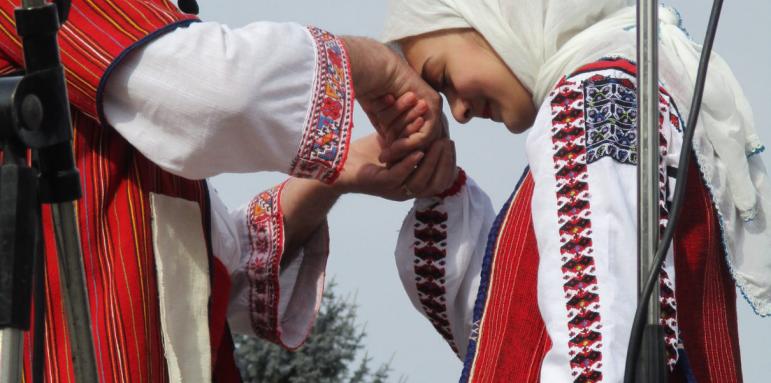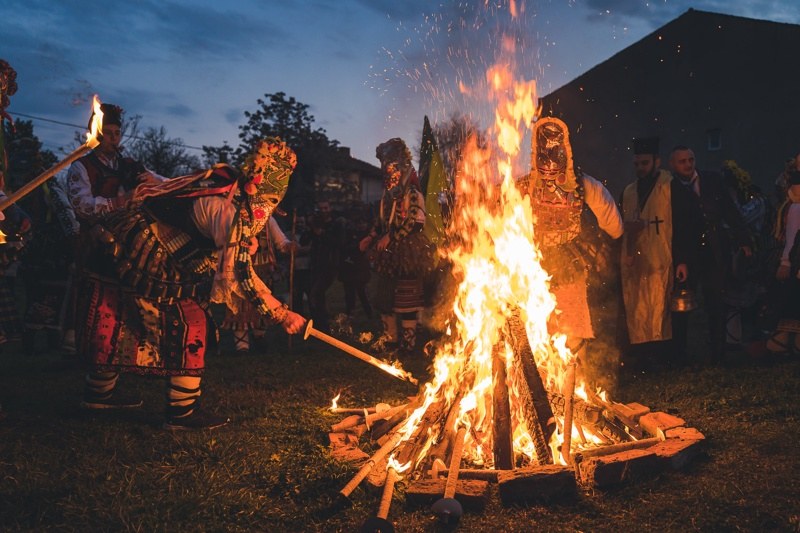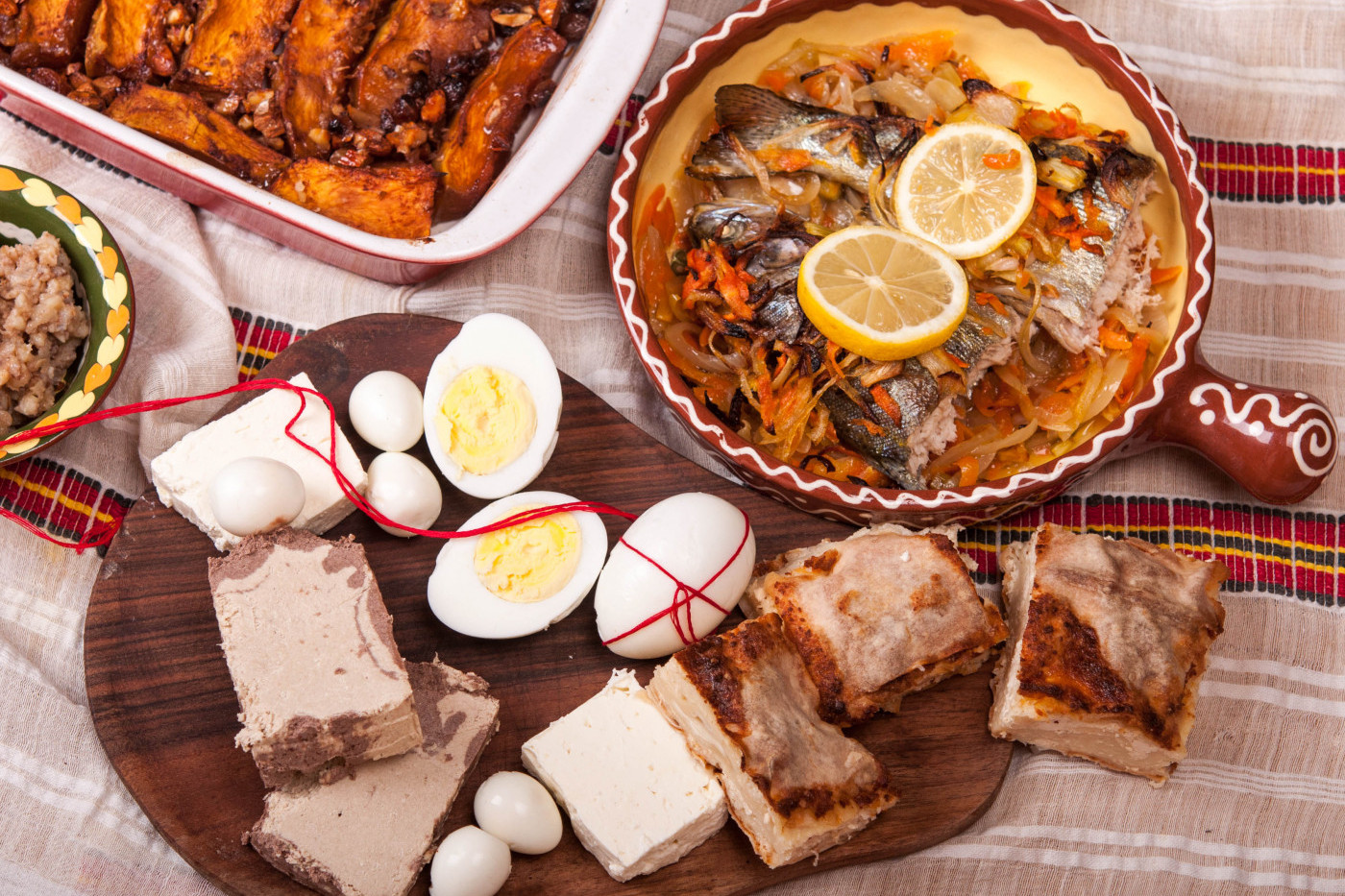Today Bulgarians ask for Forgiveness on Shrovetide (Sirni Zagovezni)
Society | February 26, 2023, Sunday // 10:50| views
@Zov News
Shrovetide or Sirni Zagovezni (Сирни Заговезни) is the last big holiday of winter according to the old Bulgarian customs.
The holiday of Sirni Zagovezni is not on a fixed date and falls every year 7 weeks before Easter, always on a Sunday. This year it is celebrated on February 26.
The ritual of Shrovetide is related to the preparation for the Easter fast, which lasts 49 days.

On Sirni Zagovezni, all relatives "forgive each other", with the younger ones going to the older ones, the sons and daughters to the parents, etc. Forgiveness itself is requested as the younger people make three bows, kiss the hands of the elders and say "Forgive me". That's why the holiday is also called “Forgiving Zagovezni”. During this walk, a lemon is brought to a man and an orange to a woman, "sweet harvests" and "light fasting" are wished for. The day is also known as "Forgiveness Sunday" or simply "Forgiveness". On this day, according to the church canon, Christ's words are read: "If you do not forgive men their sins, neither will your heavenly Father forgive your sins."
Sirni Zagovezni is a holiday that is spread throughout Bulgaria, which is why it has different names. In Western Bulgaria it is called “Sirni pokladi” or “orate”. At the same time, in the Rhodope region and Southwestern Bulgaria, this holiday bears the names ria, oràdie, sùrni zapòshka, zapostane. On this day, the ritual sowing of the land takes place, hence the name of the holiday in the Rhodopes and the southwestern regions of the country. In Northeastern Bulgaria, this holiday is known as sirni zagovelki, sûr zagovezni and sirnitsa. Sirnitsa is one of the richest in rituals and rites holiday. Its rich ritual is connected with the beginning of the new agricultural and economic year of the Bulgarians. Most rituals and rites symbolize the reviving nature.

One of the main elements in this festive rite is the ritual lighting of fire. Fire itself is one of the four natural elements, which is why it is permanently associated with the Bulgarian traditional worldview. It occupies an important place not only in the Bulgarian spring holidays, but also in those of our neighboring nations.
In the Bible, fire is a symbol of God's holiness and God's strong anger towards every sin. In Orthodoxy, communion is compared to the fire of God, burning the unworthy and purifying the worthy. It is a symbol of the Holy Spirit, expressing its strengthening and purifying role, especially in relation to human consciousness.
In the morning of Sirni Zagovezni, the stacked bales of hay and dry trees are lit. This is usually done on high ground in the settlement. But sometimes there are exceptions. Festive bonfires were lit in the square itself. Once the fire is lit, people start jumping ritual bonfires for health. Its purifying power is leading this holiday.
In addition to these fires, torches and fire arrows are also lit on Sirna Sunday. With lit torches carried by children or young people, a ritual cleansing of the fields is carried out. This is done in order for the fields to give a better yield. This fire has different names in different parts of Bulgaria. Most often, it is called katralnik, pelelia or oskaliya.

The festive table of Srini Zagovezni is also very rich in rituals and rites. It must include dishes made from dairy products, eggs and white halva. Then the person eats such foods for the last time before the strict fast.

One of the most interesting rituals is the so-called hamkane (amkane). A piece of white halva or a boiled egg is hung on a white thread in the middle of the room, which swings. Arranged in a circle around this string, the children must bite it without the help of their hands. After this is over, the string on which the egg or halva stood is lit. Then the elderly members of the family begin to guess. These fortune-tellings are related to the hopes for a better agricultural year, health and possible future marriage of the young members of the family.
Follow Novinite.com on Twitter and Facebook
Write to us at editors@novinite.com
Информирайте се на Български - Novinite.bg
/BGNES
We need your support so Novinite.com can keep delivering news and information about Bulgaria! Thank you!
Back
